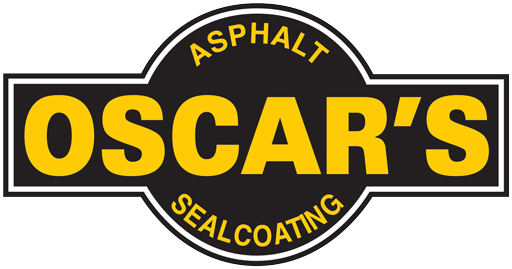Frequently Asked Questions
What is Asphalt?
Asphalt, also known as bitumen, is a black, sticky, and highly viscous liquid or semi-solid form of petroleum. It is commonly used as a binder mixed with mineral aggregates, such as sand and gravel, to create asphalt concrete. Asphalt concrete is used in a wide variety of applications, including roads, parking lots, driveways, and more, due to its durability, strength, and weather-resistant properties
What is Asphalt Made Of?
Asphalt is primarily made of two components: a bitumen binder and mineral aggregates. Bitumen is a byproduct of the petroleum refining process and acts as a glue to hold the aggregates together. Mineral aggregates, such as sand, gravel, or crushed stone, make up the majority of the asphalt mixture and provide its strength and stability. These aggregates are carefully selected and graded to ensure optimal performance and longevity of the asphalt surface.
What is Asphalt Sealcoating?
Asphalt sealcoating is the process of applying a protective coating to asphalt surfaces, such as driveways, parking lots, and roads. It involves the application of a specially formulated sealant to the asphalt surface, creating a protective barrier that shields it from the damaging effects of sunlight, water, chemicals, and daily wear and tear.
By applying asphalt sealcoating, you can protect and preserve your asphalt surfaces, prolong their lifespan, and maintain their aesthetic appeal while minimizing future maintenance costs.
How Long Should I Stay Off My Driveway After Sealing?
It is recommended to stay off your driveway for a certain period to allow the sealant to cure properly. The exact duration can vary depending on various factors, such as weather conditions, the type of sealant used, and the thickness of the application. However, here are some general guidelines to follow:
Walking: It is typically safe to walk on a sealed driveway after 24 to 48 hours. However, it's advisable to avoid excessive foot traffic during the first few days to prevent scuffing or damaging the newly applied sealant.
Driving: The recommended wait time before driving on a sealed driveway is typically around 72 hours. This allows the sealant to fully cure and harden, ensuring maximum durability and performance.
Weather Considerations: It's important to note that adverse weather conditions, such as rain or high humidity, can prolong the curing time. If there is rain in the forecast within the first 24-48 hours, it's best to delay using the driveway until the weather improves.
Follow the Contractor's Instructions: The specific instructions provided by the sealcoating contractor should always take precedence. They may provide customized recommendations based on the specific sealant used and other factors related to your driveway.
Remember, these timeframes are general guidelines, and it's best to consult with your sealcoating professional for specific recommendations tailored to your situation. Following the recommended curing time will ensure that your drive
How Much Does it Cost to Repave a Driveway?
The cost to repave a driveway can vary widely depending on factors such as the size of the driveway, the materials used (asphalt or concrete), the condition of the existing surface, and any additional features or customization options. To get an accurate estimate for your driveway repaving project, we recommend contacting Oscar's Asphalt & Sealcoating for a consultation and personalized quote based on your specific needs.
If you have any further questions or require more information about our services, Contact us today. One of our experienced representatives would love to answer your questions.
How Much Does It Cost To Seal A Driveway in NJ?
The cost of sealing a driveway in NJ can vary widely depending on several factors, including the size of the driveway, the type of sealer used, the condition of the driveway, and the region or location. On average, you might expect to pay anywhere from $0.15 to $0.50 per square foot for driveway sealing.
For a more concrete estimate, let's break it down:
Size of Driveway: Measure the square footage of your driveway to get an accurate estimate. If your driveway is 1,000 square feet, for example, and the cost is $0.25 per square foot, the total cost would be $250.
Type of Sealer: There are different types of sealers available, such as coal tar-based, asphalt-based, acrylic, and more. Different sealers have different costs. Some sealers might be more durable and long-lasting, but they could also be more expensive.
Condition of Driveway: If your driveway requires more preparation work, like cleaning, repairing cracks, or filling potholes, these additional services could increase the overall cost.
Labor Costs: If you're hiring a professional to seal your driveway, labor costs will be a factor. Labor prices can vary based on the local market rates and the complexity of the job.
Location: Costs can also vary by region. Prices tend to be higher in urban areas with higher costs of living.
Additional Services: Some contractors might offer additional services like line striping or adding a second coat of sealer. These can also add to the cost.
To get an accurate estimate, it's recommended to contact several driveway sealing contractors in your area. Our team at Oscar’s Asphalt & Sealcoating can provide you with quotes based on your specific driveway's size and condition. It's also a good idea to inquire about the type of sealer they use and any warranty or guarantee they offer.
Remember that while cost is important, it's also essential to consider the quality of the work and the reputation of the contractor. A well-done driveway sealing job can protect and extend the life of your driveway, saving you money in the long run.
